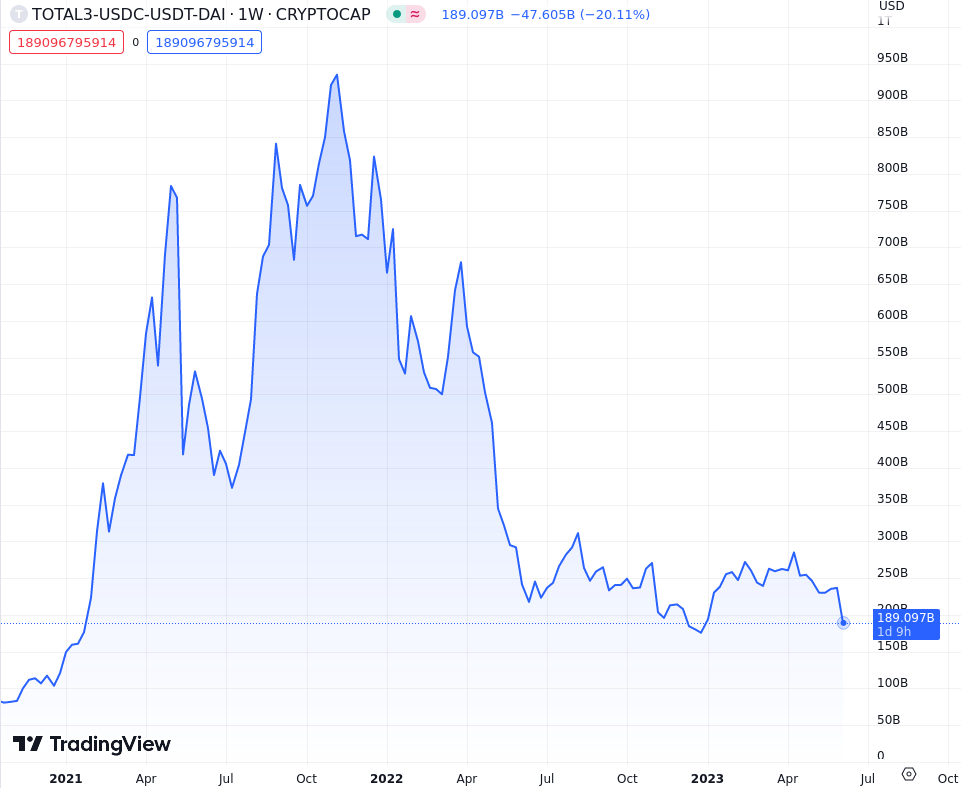Welcome Avatar!
The SEC continues to fire bullets at crypto’s major players, including Binance and Coinbase who are being sued for selling unregisterd securities. Binance has suspended USD deposits and will be suspending withdrawals on June 13. Robinhood caught some strays (not their first time), announcing that it would be delisting all crypto tokens on its platform that the SEC has classified as securities (ADA, MATIC, SOL) on June 27. Crypto.com has also decided to shut down its institutional operations in the U.S., citing a lack of demand.
The SEC is going after Coinbase who has, as far as we can tell, operated mostly clean outside of a few scandals around token listings. They are a public company who makes their disclosures as required by law and has not comingled funds like FTX. The accusation is that Coinbase’s business as a whole is a breach of U.S. securities law.
U.S. law is U.S. law, and the SEC is within their right to pursue crypto exchanges even though it’s unreasonable. They can’t stop crypto though (unless they find the super secret “Off” button).

Understanding Tokens at a Deep Level
Crypto tokens are just programmed code. Software protocols specify the characteristics of a token and its guidelines within the limitations of the blockchain a token is founded on. Tokens can have functional features that have nothing to do with money, such as storage for computing. People can decide they want to make use of a token and find a way to purchase that token, ascribing it a “value.” The existence of the token could mean something important, but it could also mean nothing at all.
Stocks and bonds have financial value backed by legal agreements. Common stock in a company entitles you to share in the performance of a company over time (good or bad). Bonds are a legal obligation between borrower and lender that require the borrower to meet certain obligations (interest payments, principal payments, etc.) in exchange for capital.
Bonds are less risky than stock because they come with a promise to repay, but they have capped upside. Equity reaps the rewards of all the upside of a company after everyone else has been paid. This feels fair - bondholders enter into an agreement that exposes them to some risk and some fixed reward for providing capital, but less reward than the equity holders who bear all the risk and have no promise of ever being repaid.
When bondholders think about lending, they’re primarily concerned with the ability and willingness of the borrower to repay the principal and interest. Their upside is known and limited, so they’re focused on protecting their downside. Shareholders are primarily concerned with increasing the value of the principal they’ve invested through capital gains and dividends.
Different individuals and entities may have different goals for why they purchase equity (income, appreciation, diversification, etc.), but the rights provided by shares are relatively uniform compared to tokens and even credit instruments.
For example, everyone knows that shareholders are the last to get paid any value if a company fails.
As the crypto market has whipsawed over the years and founders have separated, people are reminded of what tokens really represent. It has become quite clear to us that people do not understand what they are buying.
What are tokens, really?


